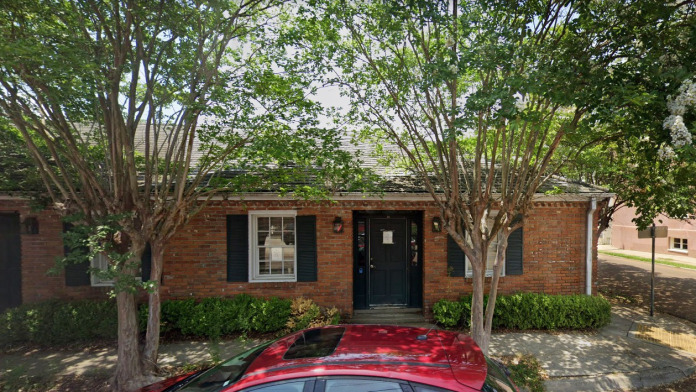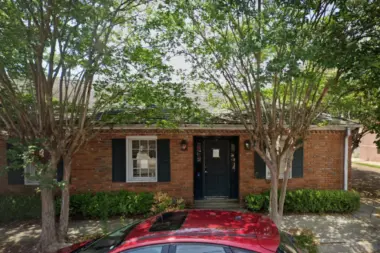About Region XI Southwest MS – Mental Health Center
Region XI Southwest MS–Mental Health Center is a mental and behavioral healthcare facility for adolescents and adults in Natchez, Mississippi with co-occurring addiction and mental illness, including specialized services for seniors, young adults, and persons with co-occurring addiction and mental illness.
Medication Assisted Treatment (MAT)
Clients recovering from alcohol and/or opioid addiction may enroll in the medication assisted treatment program, in which FDA-approved medications are prescribed to ease withdrawal symptoms and promote clients’ sustained sobriety.
Inpatient Program
The inpatient program allows clients to focus on their recovery in a highly structured and supportive environment. Clients engage in intensive, trauma-informed individual, group, and family counseling drawing on proven modalities, including EMDR, CBT, and DBT. The program also prioritizes recovery-focused life skills training to support clients’ successful reintegration into their home, workplace, school, and community. Recovery education may address topics such as coping, wellness, self-care, and relapse prevention.
Outpatient and Aftercare Services
Their outpatient programs ensure a complete continuum of care aligned with clients’ evolving needs, including intensive outpatient (IOP) and standard outpatient (OP) programming. Aftercare services may include referrals for medical, mental health, and social service programs.
Payment Options
Region XI Southwest MS–Mental Health Center accepts private insurance, military insurance, Medicaid, Medicare, and self-pay. Financial aid and sliding scale payment assistance are available.
Rehab Score
Gallery


Accepted Insurance
Other Forms of Payment
Medicaid is a state based program that helps lower-income individuals and families pay for healthcare. Medicaid covers addiction treatment so those enrolled can use their coverage to pay for rehab. When a program accepts Medicaid the client often pays very little or nothing out of their own pocket.
Private insurance refers to any kind of healthcare coverage that isn't from the state or federal government. This includes individual and family plans offered by an employer or purchased from the Insurance Marketplace. Every plan will have different requirements and out of pocket costs so be sure to get the full details before you start treatment.
Self-pay involves paying for treatment out of your own pocket. You can use savings or credit, get a personal loan, or receive help from family and friends to fund your treatment. If you don't have insurance or your insurance plan doesn't cover a specific program, self-pay can help ensure you still get the care you need.
Financial aid can take many forms. Centers may have grants or scholarships available to clients who meet eligibility requirements. Programs that receive SAMHSA grants may have financial aid available for those who need treatment as well. Grants and scholarships can help you pai for treatment without having to repay.
Sliding scale payments are based on a client's income and family size. The goal is to make treatment affordable to everyone. By taking these factors into account, addiction recovery care providers help ensure that your treatment does not become a financial burden to you or your family, eliminating one barrier to care.
Medicare is a federal program that provides health insurance for those 65 and older. It also serves people under 65 with chronic and disabling health challenges. To use Medicare for addiction treatment you need to find a program that accepts Medicare and is in network with your plan. Out of pocket costs and preauthorization requirements vary, so always check with your provider.
Military members, veterans, and eligible dependents have access to specific insurance programs that help them get the care they need. TRICARE and VA insurance can help you access low cost or no cost addiction and mental health treatment. Programs that accept military insurance often have targeted treatment focused on the unique challenges military members, veterans, and their families face.
Private insurance refers to any kind of healthcare coverage that isn't from the state or federal government. This includes individual and family plans offered by an employer or purchased from the Insurance Marketplace. Every plan will have different requirements and out of pocket costs so be sure to get the full details before you start treatment.
Addiction Treatments
Levels of Care
Outpatient Programs (OP) are for those seeking mental rehab or drug rehab, but who also stay at home every night. The main difference between outpatient treatment (OP) and intensive outpatient treatment (IOP) lies in the amount of hours the patient spends at the facility. Most of the time an outpatient program is designed for someone who has completed an inpatient stay and is looking to continue their growth in recovery. Outpatient is not meant to be the starting point, it is commonly referred to as aftercare.
Inpatient rehab provides a highly supportive and structured environment for clients in early recovery and for those who are at an elevated risk of relapse. Clients remain at the treatment center for the duration of their programs, though some inpatient rehabs offer supervised group excursions. Clients engage in intensive individual, group, and or family counseling. They may also receive recovery-focused life skills training to support their sustained sobriety and community reintegration. Many programs offer holistic therapies, such as meditation.
Recommended as a flexible and intensive addiction treatment option, a partial hospitalization program (PHP) is often used as an alternative to inpatient rehab. With daily sessions typically lasting up to six hours for five days a week, PHP treatment provides evidence-based therapies and medical care while allowing you to return home every evening. The length of PHP treatment varies based on your needs, but it averages 90 days.
Treatments
Many of those suffering from addiction also suffer from mental or emotional illnesses like schizophrenia, bipolar disorder, depression, or anxiety disorders. Rehab and other substance abuse facilities treating those with a dual diagnosis or co-occurring disorder administer psychiatric treatment to address the person's mental health issue in addition to drug and alcohol rehabilitation.
Mental health rehabs focus on helping individuals recover from mental illnesses like bipolar disorder, clinical depression, anxiety disorders, schizophrenia, and more. Mental health professionals at these facilities are trained to understand and treat mental health issues, both in individual and group settings.
When a person has alcohol use disorder, often referred to as alcoholism, they build up a physical tolerance to alcohol, and they experience withdrawal if they stop drinking. Due to physical and psychological dependence, they may be unable to stop drinking on their own. Alcohol rehab in Mississippi can help. Treatment options include detox, cognitive behavioral therapy, mutual help groups, and pharmacological treatments.
In Mississippi, substance abuse treatment is available in inpatient and outpatient rehabs. These facilities can treat a range of substance use disorders and even co-occurring mental health challenges, in dual-diagnosis treatment programs. These programs involve an assessment with an addiction expert, personalized treatment plan, and evidence-based therapies such as cognitive-behavioral therapy (CBT) or dialectical behavior therapy (DBT). By addressing the underlying issues contributing to addiction, you'll leave treatment with the skills to sustain your recovery.
Programs
Adult rehab programs include therapies tailored to each client's specific needs, goals, and recovery progress. They are tailored to the specific challenges adult clients may face, including family and work pressures and commitments. From inpatient and residential treatment to various levels of outpatient services, there are many options available. Some facilities also help adults work through co-occurring conditions, like anxiety, that can accompany addiction.
Young adulthood can be an exciting, yet difficult, time of transition. Individuals in their late teens to mid-20s face unique stressors related to school, jobs, families, and social circles, which can lead to a rise in substance use. Rehab centers with dedicated young adult programs will include activities and amenities that cater to this age group, with an emphasis on specialized counseling, peer socialization, and ongoing aftercare.
Teen programs are designed to address the unique pressures teens face, pressures that can drive them to experiment with dangerous, addictive substances. They need programs that meet them exactly where they are and give them tools for long-term recovery. Therapy can help teenagers understand and work through underlying issues so they can reclaim the life ahead of them.
Clinical Services
Cognitive Behavioral Therapy (CBT) is a therapy modality that focuses on the relationship between one's thoughts, feelings, and behaviors. It is used to establish and allow for healthy responses to thoughts and feelings (instead of unhealthy responses, like using drugs or alcohol). CBT has been proven effective for recovering addicts of all kinds, and is used to strengthen a patient's own self-awareness and ability to self-regulate. CBT allows individuals to monitor their own emotional state, become more adept at communicating with others, and manage stress without needing to engage in substance abuse.
Whether a marriage or other committed relationship, an intimate partnership is one of the most important aspects of a person's life. Drug and alcohol addiction affects both members of a couple in deep and meaningful ways, as does rehab and recovery. Couples therapy and other couples-focused treatment programs are significant parts of exploring triggers of addiction, as well as learning how to build healthy patterns to support ongoing sobriety.
Research clearly demonstrates that recovery is far more successful and sustainable when loved ones like family members participate in rehab and substance abuse treatment. Genetic factors may be at play when it comes to drug and alcohol addiction, as well as mental health issues. Family dynamics often play a critical role in addiction triggers, and if properly educated, family members can be a strong source of support when it comes to rehabilitation.
Group therapy is any therapeutic work that happens in a group (not one-on-one). There are a number of different group therapy modalities, including support groups, experiential therapy, psycho-education, and more. Group therapy involves treatment as well as processing interaction between group members.
In individual therapy, a patient meets one-on-one with a trained psychologist or counselor. Therapy is a pivotal part of effective substance abuse treatment, as it often covers root causes of addiction, including challenges faced by the patient in their social, family, and work/school life.
Counselors who apply motivational interviewing take on the roles of listening and reflecting. Their goal is to facilitate conversation about change and commitment to change. They offer support and seek to empower the client to make changes in their life.
Accreditations

State Licenses are permits issued by government agencies that allow rehab organizations to conduct business legally within a certain geographical area. Typically, the kind of program a rehab facility offers, along with its physical location, determines which licenses are required to operate legally.
State License: Mississippi
Contact Information
Jeff Davis Blvd
Natchez, MS 39120





